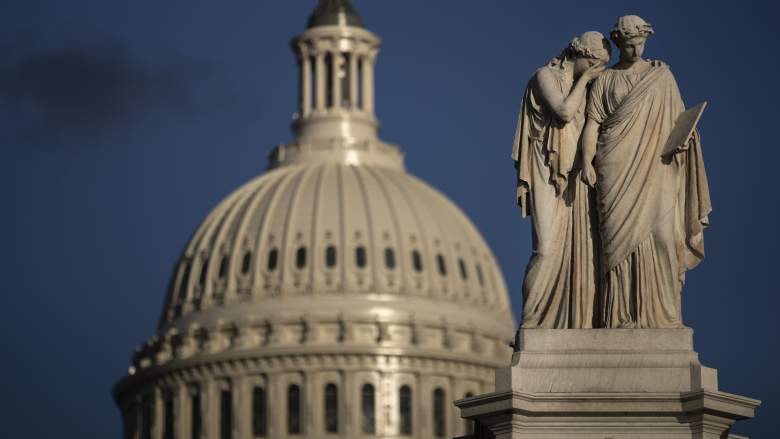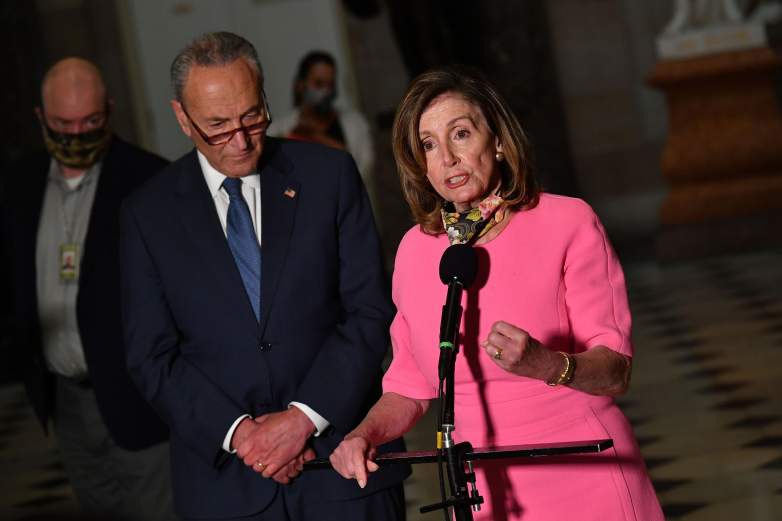
The day slated for Congress to come to an agreement on a stimulus bill and continued federal unemployment compensation for the roughly 16.3 million American’s that are out of work came and went and still, no deal. Their deadline was Aug. 7.
As Republican and Democratic members of the Senate and House of Representatives continue to seemingly not be capable of reaching a compromise that may help flailing businesses and the employees being hit hardest by the coronavirus pandemic, they continue to earn their annual $174,000, according to the Congressional Research Service.
The CRS says that’s the rate of pay “for most Senators, Representatives, Delegates, and the Resident Commissioner from Puerto Rico is $174,000. The only exceptions include the Speaker of the House (salary of $223,500) and the President pro tempore of the Senate and the majority and minority leaders in the House and Senate (salary of $193,400).”
The rate of pay for the elected politicians has not changed since 2009. Proposals for raises have been made but none have passed.
Now that it’s the first day of summer break for Congress, who is the governing body that is tasked with reaching an agreement on how much money to include in the second stimulus package, President Donald Trump has said he will make an executive order outlying the next phase of a stimulus.
Members of Congress Get Millions of Dollars in an ‘Allowance’ To Cover the Costs of Their ‘Personnel, Office Expenses, Travel to the District, & Mail’

GettyHouse Speaker Nancy Pelosi, D-CA, (R) speaks to the media, flanked by US Senate Minority Leader Chuck Schumer, D-NY, after meeting with the White House Chief of Staff and the US Treasury Secretary on coronavirus relief at the US Capitol in Washington, DC on August 7, 2020. Democrats urged the White House to stick with negotiations on a new aid plan for Americans facing hardship due to the coronavirus pandemic, after Donald Trump said he is ready to bypass Congress to maintain emergency assistance.
While many businesses are struggling to stay afloat, members of Congress are awarded money separate from their salaries to cover costs similar to what business owners need for to stay in operation, like money to pay employees and for general office expenses. These allowance amounts are different by House and Senate, with the Senate getting more money for slightly different expenses.
House members’ allowance is called The Members’ Representational Allowance, or MRA. That money is to be used to cover personnel, office expenses, and official mail costs.
According to the CRS, “In June 2017…MRAs ranged from $1,251,177 to $1,433,709, with an average of $1,315,523.”
The Senate’s allowance is called “The Senators’ Official Personnel and Office Expense
Account” or SOPOEA. The CRS reports that in fiscal year 2018 individual Senators used $3 million to over $5 million in allowances, with the average allowance being $3,467,971 that year. That money was to be used for administrative and clerical costs, legislative assistance and office expenses.
Another perk — members of Congress are awarded $40,000 to furnish their offices in the state they represent, as long as the office space or spaces stays under 5,000 square feet. If the space or aggregated spaces are bigger than 5,000 square feet, “the “base authorization is increased by $1,000 for each authorized additional incremental increase in office space of 200 square feet.” However, all of the furniture remains government property.
Meanwhile, more businesses continue to buckle under the weight of the pandemic. According to Yelp’s latest Economic Average Report, “permanent closures now accounting for 55% of all closed businesses since March 1, an increase of 14% from June when we reported 41% of closures as permanent. Overall, permanent closures have steadily increased since the peak of the pandemic with minor spikes in March, followed by May and June.”
Congress or Trump May Still Come Up With Some Kind of Order Regarding The Stimulus But Congress’ August Break is a 50-Year-Old Tradition
According to Forbes, three possible scenarios are most likely now that it’s time for Congress to take a break while the country is in limbo regarding the economy.
Forbes says either Congress will hang back and finalize a stimulus package next week, or they may agree on some terms but overall not pass either the Republican proposed HEALS Act or the Democrat proposed HEROES Act stimulus packages.
According to Forbes that could look like a situation in which “both parties agree and defer policies where there is disagreement. This way, Congress can provide financial relief to the American people now, millions of whom are struggling financially and are unemployed in the wake of Covid-19.”
A third scenario is the one in which President Trump makes an executive decision. While it’s not completely clear what all that will entail, Trump announced that he is looking at extending the payroll tax through the end of the year retroactive to July 1. He also said he would defer student loan payments “until further notice,” especially since some students can’t even go to school on campus.
Trump said he would extend the eviction moratorium and enhanced unemployment benefits to the end of the year.
However, what those unemployment benefits will be has been an ongoing point of contention and one of the main sticking points between Dems and the GOP.
Democrats are asking to keep the federal unemployment payments at $600 per week through the end of the year, while Republicans say that’s too much and is prohibitive to people seeking employment since they are already making enough income in unemployment benefits. Republican lawmakers say $200 per week of federal unemployment is sufficient through September, then in October “states could provide unemployment insurance up to 70 percent of a person’s previous paycheck, up to $500,” according to Spectrum News 1.
Still, it’s time for Congress to get their break, which has been mandated since 1970. According to the U.S. Senate, “Today, the August recess continues to be a regular feature of the Senate schedule, a chance for senators to spend time with family, meet with constituents in their home states, and catch up on summer reading.”
READ NEXT: Orlando Burger King Worker Murdered Over Long Wait: Police